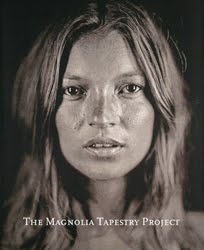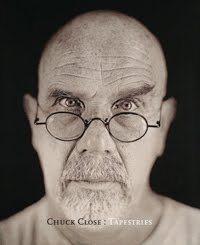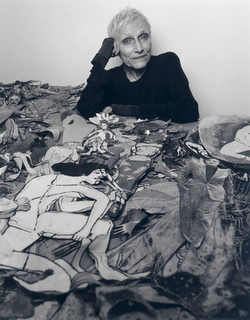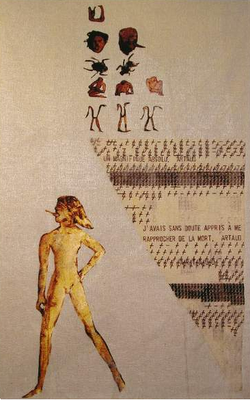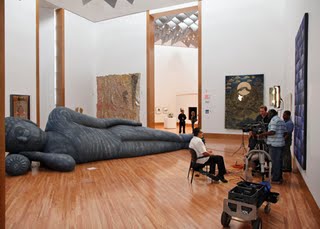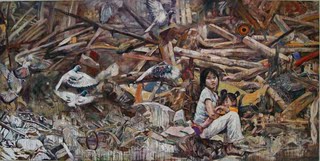
oil on canvas, 80 x 160 in. (click to enlarge)
In The New York Times Arts section from October 22, Holland Cotter reviews Hung Liu's "Apsaras" show at Nancy Hoffman Gallery:
[Her] mural-size paintings at Nancy Hoffman [...] combine documentary immediacy with myth. In one picture a young woman sits, holding a child in the ruins of a building that may have been their home. A flock of pigeons, white and graceful against the wreckage, flies toward her.
In a painting titled “Rescue,” a line of people in hospital scrubs and military camouflage struggle to carry a figure on a stretcher up a rocky slope. A giant butterfly coasts along beside them, as if marking the way.
Other winged creatures hover in a close-up image of a girl’s bandage-swathed face. They are Buddhist angels called apsaras. Ms. Liu has lifted them from the walls of ancient cave temples and monasteries at the Silk Road city of Dunhuang near the Gobi Desert, where she spent time in the 1970s copying and conserving religious images.
Evocations of protection and mourning recur. The form of a dead deer floats angelically in space. Memorial candles flame against a dark ground. A bird descends. An old woman weeps. It’s easy to imagine such paintings turning sentimental. In Ms. Liu’s hands they never do. Everything — the images, the overlays, the forthright brushwork, the pictures as a group — is soberly judged, deeply felt, mature. It’s hard to ask for more.
